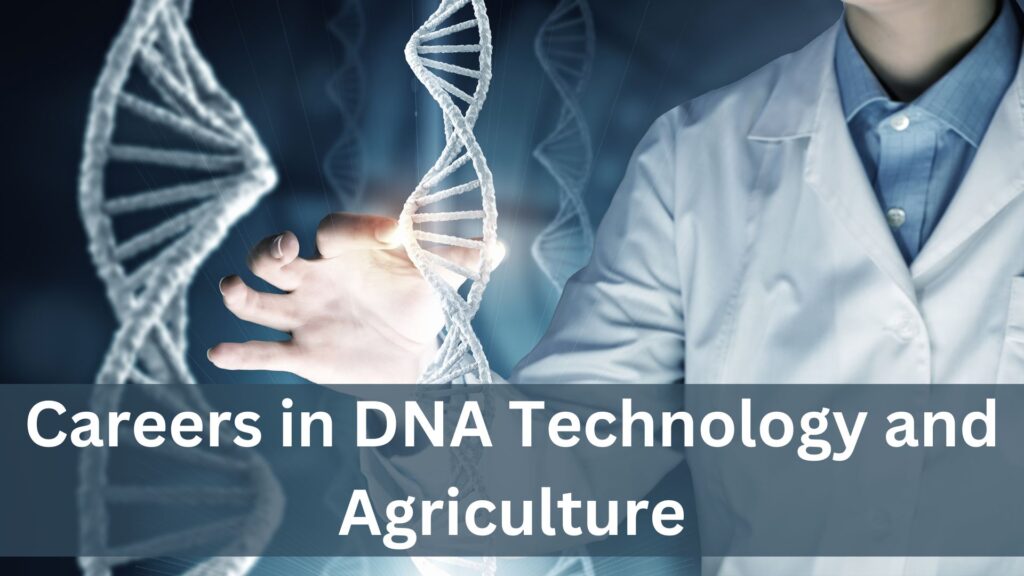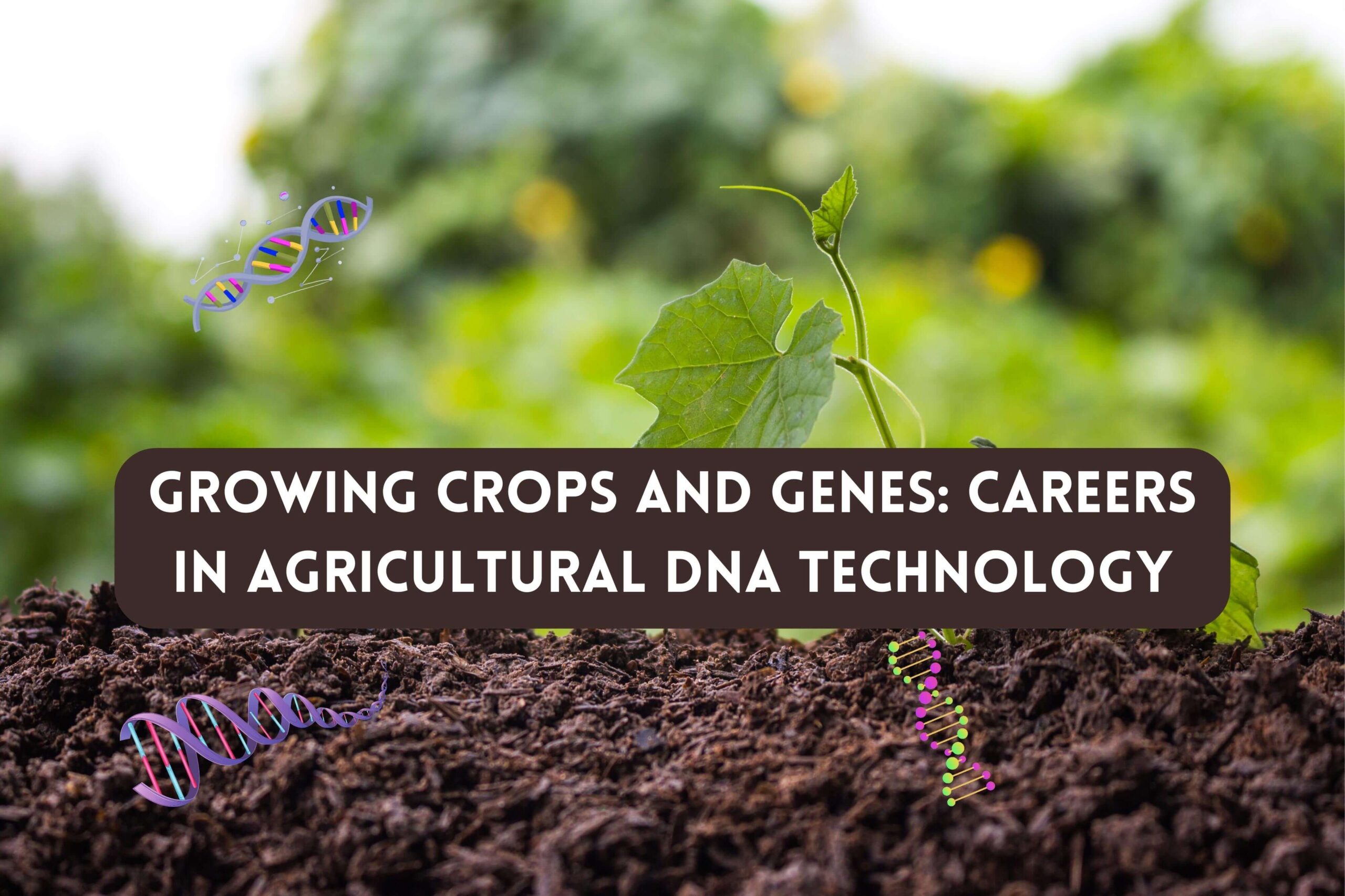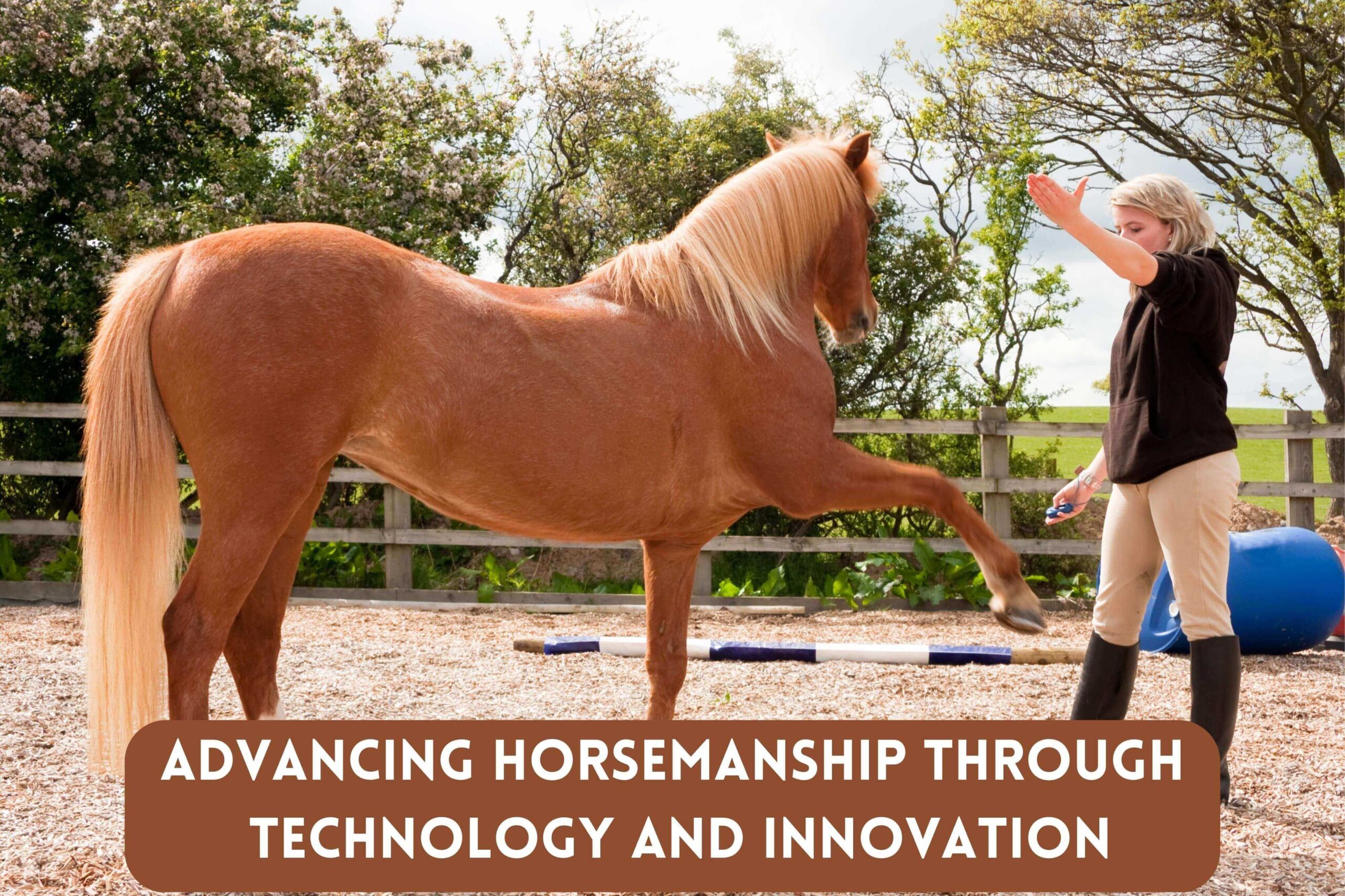TAs an agricultural expert, Growing Crops and Genes I have seen firsthand the benefits of DNA technology in agriculture. DNA technology has revolutionized how farmers and plant breeders approach crop improvement, precision agriculture, and pest management. DNA technology in agriculture has opened numerous career opportunities for agriculture enthusiasts. Growing Crops and GenesGrowing Crops and Genes This article will explore key opportunities in DNA technology and agriculture and how you can prepare for a career in this exciting industry.
Introduction to DNA Technology and Agriculture
DNA technology has become a basic instrument in farming, helping ranchers and plant breeders. It creates crops safe from bugs, dry spells, and other natural stresses. Innovation has also been applied to create genetically modified organisms (GMOs). It can increase yields and decrease pesticide utilization. Growing Crops and Genes Innovation has also played a pivotal part in accurate farming, enabling ranchers. It optimizes editing by analyzing soil conditions, climate designs, and other natural components.
Possibilities in DNA technology and agriculture
DNA technology in agriculture has opened up several exciting career opportunities, including precision agriculture, crop breeding, DNA sequencing, and genetic engineering. These fields offer diverse opportunities for people with different backgrounds and interests. Precision agriculture, for example, involves data analysis, remote sensing, Growing Crops and Genes and GIS knowledge. Crop breeding, on the other hand, requires expertise in genetics, plant physiology, and statistics. DNA sequencing and genetic engineering require knowledge of molecular biology, Growing Crops and Genes bioinformatics, and gene editing technologies.
Career growth opportunities in DNA technology and agriculture
DNA technology and agriculture are rapidly growing, with new job opportunities emerging daily. As the demand for sustainable agriculture increases, so does the need for professionals who can develop innovative solutions.Growing Crops and Genes Growth in this field has also led to a rise in salaries and benefits for professionals in DNA technology and agriculture. According to the Bureau of Labor Statistics, agricultural and food scientists earned $65,160 in May 2020.
How to prepare for a career in DNA technology and agriculture
There are a few steps you can take to prepare for a career in DNA technology and horticulture. Obtaining a degree in rural science, science, or biotechnology is the first step. In addition, you might choose to pursue graduate studies in plant breeding, genetics, or atomic science. Second, you should gain practical experience through internships, Growing Crops and Genesresearch projects, or volunteer work.
Key skills and qualifications for a career in DNA technology and agriculture
Technical and soft skills must work together for agricultural and DNA technologies to succeed. Technical expertise includes genetics, bioinformatics, and molecular biology. Communication, critical thinking, Growing Crops and Genes and problem-solving are examples of soft skills. Employers also value passionate candidates about sustainable agriculture, innovation, and teamwork.
Top companies in DNA technology and agriculture
Several leading DNA technologies and agriculture companies are leading the way in developing innovative solutions to meet modern agriculture challenges. These companies include Monsanto, Bayer, Syngenta, Growing Crops and Genes Corteva Agriscience, and BASF. These companies offer various job opportunities in research and development, product management, and sales and marketing.
Challenges and opportunities in DNA technology and agriculture
Several obstacles, such as ethical issues with genetically modified organisms (GMOs), legal restrictions, and the demand for sustainable practices, confront DNA technology and agriculture. The opportunities in this industry, however, are numerous and can completely alter how we manage our natural resources and generate food. The use of DNA technology can improve crop yields, food safety and quality, and lessen agriculture’s negative environmental effects. Sustainable and effective agriculture will grow as the world’s population rises. This makes the intersection of DNA technology and agriculture an important future emphasis area.
The importance of Keypoint opportunities in the field
Key point opportunities—major and innovative breakthroughs—are essential for agricultural and DNA technology. These possibilities offer a platform for answers to contemporary agriculture problems, Growing Crops and Genesresulting in more effective and sustainable methods. They also encourage professional networking and collaboration, enabling the sharing of ideas and knowledge.
The key opportunities in precision agriculture and crop breeding
Regarding DNA technology and agriculture, crop breeding and precision farming are two required fields with considerable potential. Utilizing data analysis, remote sensing, Growing Crops and Genesand Geographic Information Systems (GIS), precision agriculture aims to maximize crop yield by finding and correcting specific inefficiencies. Farmers can boost crop productivity while lowering waste, leading to more sustainable agricultural practices.
Crop breeding uses genetics, plant biology, and statistics to create crops resilient to pests, Growing Crops and Genes drought, and other environmental challenges. The development of crops with increased nutritional value and the discovery and use of novel genes for desired features are two key potentials in crop breeding. Plant breeders can create crops with higher yields, better quality, and increased tolerance to environmental challenges by utilizing cutting-edge genetic tools and procedures, such as marker-assisted selection.
The key opportunities in DNA sequencing and genetic engineering
In addition to DNA sequencing, genetic engineering presents several potential points for DNA technology and agriculture. Growing Crops and Genes Using DNA sequencing, scientists can pinpoint genes giving crops desirable characteristics like disease resistance, drought tolerance, and increased nutritional value. With this knowledge, genetic engineers can alter those genes to create crops with the desired characteristics. Researchers can also develop crops through genetic engineering resistant to pests, diseases, and environmental challenges, resulting in more efficient and sustainable farming methods.
Creating genetically altered organisms (GMOs) with increased yields and herbicide resistance is one of the key potentials of genetic engineering. Furthermore, genetic engineering can be used to develop crops that need fewer pesticides, minimizing environmental harm and enhancing food safety. Researchers can create more durable and sustainable crops using biotechnology, ensuring a steady food source for future generations.
Education and training for Keypoint opportunities in DNA technology and agriculture
It would be helpful if you had a combination of education and training to take advantage of Keypointe opportunities in DNA technology and agriculture. A degree in a related field, such as agricultural science, biology, or biotechnology, is essential. Growing Crops and Genes It would be wise to pursue a graduate degree in a specialized area, such as plant breeding, genetics, or molecular biology. Practical experience through internships, research projects, or volunteer work is also a must.
Careers in DNA Technology and Agriculture

DNA technology and agriculture offer several career paths, including research and development, product management, sales and marketing, and regulatory affairs. Research and development involves developing innovative solutions to modern agriculture challenges. Product management entails overseeing the development and launch of updated products. Sales and marketing entail promoting and selling products to customers. Regulatory affairs involve ensuring products comply with regulatory requirements.
Job Market Outlook for DNA Technology and Agriculture
Professionals working in DNA technology and agriculture have a bright future ahead of them, thanks to rising demand for their services. According to the Bureau of Labour Statistics, agriculture and food scientists’ employment is expected to increase by 6% between 2019 and 2029. This is greater than the average growth rate for all occupations.
Resources for Further Learning and Networking
Resources are available to keep up with DNA technology and agricultural developments. Reading trade journals, attending conferences and seminars, and joining professional organizations are all excellent methods of networking and learning about the sector. Agronomists and soil scientists associate with organizations like the American Society of Agronomy.
The Future of DNA Technology in Agriculture
Agriculture’s use of DNA technology has a bright future. Food security, climate change, and natural corruption are just some of the issues it addresses. Growing Crops and Genes Crop yields may be increased, agricultural methods can be made more sustainable and effective, and novel, disease- and pest-resistant crops can be created using DNA technology. DNA technology in agriculture is expected to increase as consumer demand for sustainable agriculture rises.
Conclusion
In conclusion, DNA technology has become an essential tool in agriculture, offering numerous career opportunities in precision agriculture, crop breeding, DNA sequencing, and genetic engineering. The key points in this field provide a platform for professionals to develop innovative solutions to modern agriculture’s challenges. Growing Crops and Genes Taking advantage of these opportunities requires instruction, preparation, and common sense involvement.
The Following Post You Like:
Top Innovative Cloud Computing Solutions in 2023
Master Web Development Tools for ’23 Success & Innovation
Which Career Combines DNA Technology And Agriculture?
FAQs
What is DNA technology in agriculture?
DNA technology in agriculture uses genetic engineering, DNA sequencing, and other molecular biology techniques to improve crop production, pest management, and precision agriculture.
What are the most important opportunities in DNA technology and agriculture?
DNA technology and agriculture opportunities include precision agriculture, crop breeding, DNA sequencing, and genetic engineering.
What skills do you need for a career in DNA technology and agriculture?
Specialized knowledge of atomic science, hereditary qualities, and bioinformatics. It would be advantageous, as would delicate capacities like problem-solving, communication, and basic thinking. This will enable you to excel in DNA technology and agriculture. Growing Crops and Genes Employers in this field also reward sustainable agriculture, innovation, and teamwork.



